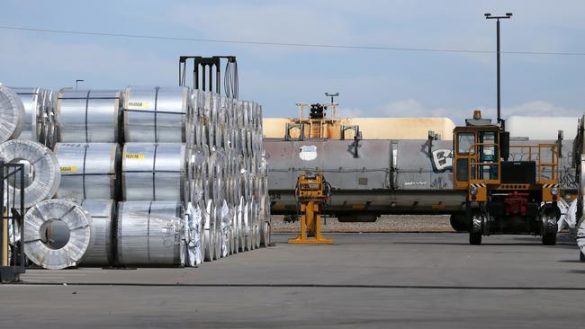The Department of Trade and Industry has warned that the steel industry would exit the coronavirus (Covid-19) lockdown in severe financial distress potential plant closures and job losses.
The department’s Trade and Industrial Policy Strategies (Tips) on Friday said the industry could experience a devastating R1 billion negative cash cost on the five-week lockdown unless the government intervened.
It said the situation would be made worse by the fact that Chinese and Russian were expected to resume their low-price steel offering.
Tips said its research showed that the industry needed emergency funding and consolidation for plants to reopen and be sustainable.
It said cash flow had been fundamentally disrupted with many customers reporting that they would not be able to pay as they had also not been paid.
“This lack of liquidity will force a spate of defaults and possibly some parts of the industry will not survive this crisis, not because they are bad businesses, but simply because the flow of cash dries up,” Tips said.
“Manufacturing companies integral to the supply chain of SA Inc. may not recover, which will have a longer-term impact on the competitiveness of some other sectors.”
Tips said steel production in the second quarter was expected to be 50 percent lower.
It said while there may be slight improvement in the third and fourth quarters, demand was still expected to be 30-40 percent lower than normal.
The group said domestic steel consumption was projected to be below 3.3 million ton this year, 26 percent lower than 4.5 million tonnes in 2019, “as the major part of the forward order book is cancelled.” .
The local steel industry produces some 9 million tons a year, making it a small global player, compared with for instance China, the biggest producing country, with 928 million tons produced in 2018.
Tips said the downstream steel fraternity was “extremely pessimistic” from both demand and cash flow perspectives.
It said a possible solution to the liquidity crunch was for the Industrial Development Corporation to create a temporary lending facility to provide payment-term relief to customers of the steel industry, possibly administered by one of the industry bodies.
This would allow steel mills to offer extended payment terms to customers of up to120 days rather than the standard 30 days, which would allow South African-based manufacturing to weather the short-term impact to cash flows.
The interventions also needed to cater also for large businesses with a turnover in excess of R50 million a year. The upstream steel industry also needed exemption from the
Competition Commission to work together “to save whatever was possible to save.”
A proposal for the government to protect the manufacturing industry included a review of imports to prevent a flood of products from countries that had opened up earlier, and had excess stock to dump into South Africa’s market.
There was ready-for-dispatch steel export cargo at the ports of Saldanha and Durban, but these were being held up because Transnet was unclear if this cargo was part of the so-called allowed activities, the Tips report said.















